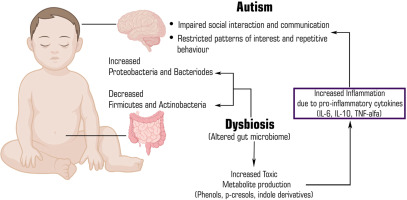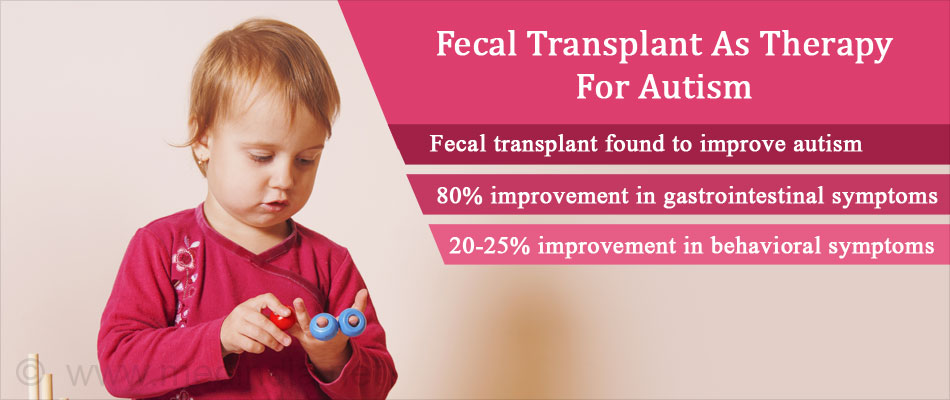FMT (Fecal Microbiota Transplant )
AUTISM IS NOT A DISEASE, IT’S A TEMPORARY PHASE IN THE LIFE OF A CHILD, IF IT IS TREATED TIMELY
1) FMT in Children With Autism Full Recovery From Autism – Absolute Recovery From Autism
2) FMT has been shown to resolve 80%+ of Autism cases symptom reductions of up to 50% were maintained two years after fecal transplants
3) 84% improvement in the core ASD symptoms of language, social interaction and behavior even after two years.
4) Over three-quarters of severe cases were reduced to mild, moderate, or below the scale.
5) Fecal transplants can help treat Inflammatory Bowel Disease (IBD) in up to 77% of cases.

FMT Relieves Autism
We further observed that FMT could promote the colonization of donor microbes and shift the bacterial community of children with ASD toward that of TD controls. The abundance of Eubacterium coprostanoligenes pre-FMT was positively correlated with high GSRS scores, whereas a decrease in Eubacterium coprostanoligenes abundance induced by FMT was associated with the FMT response.
Our data suggest that FMT might be a promising therapeutic strategy to improve the GI and behavioral symptoms of patients with ASD, possibly due to its ability to alter gut microbiota and highlight a specific microbiota intervention that targets Eubacterium coprostanoligenes that can enhance the FMT response
🧠 Summary Table
| Feature | Detail |
|---|---|
| Primary use | Recurrent C. difficile infection |
| Success rate (C. diff) | 85–90% |
| Delivery methods | Colonoscopy, enema, capsules, nasogastric tube |
| Experimental uses | IBD, IBS, autism, MS, obesity, etc. |
| Regulation (US) | FDA-regulated under IND or emergency use |
| Risks | Mild GI symptoms, rare infection |
Assessments of Autism and Related Symptoms
Frequently Asked Questions...
FMT introduces beneficial bacteria into the gut to outcompete harmful bacteria like C. diff, helping restore normal intestinal function.
It’s primarily for patients with recurrent or treatment-resistant C. diff infections. It’s also being studied for conditions like IBD, IBS, and metabolic diseases.
FMT is not officially FDA-approved, but it is allowed for recurrent C. diff under enforcement discretion. FDA-approved products like Rebyota (a standardized stool-derived therapy) are available for specific indications.
Not always. While it can cure C. diff, the long-term impact on the microbiome is still being studied, especially for chronic conditions.
Only for C. diff, and usually through hospitals, specialized clinics, or approved products. DIY FMT is strongly discouraged due to safety concerns.
How to Find Us
Address
CTS-1420 Near Shaniwarwada, Kasba peth, Pune -411011
Phone
+91-9511111222
+91-9011111222
admin@universal-hospital.com
anantbagul@yahoo.com
